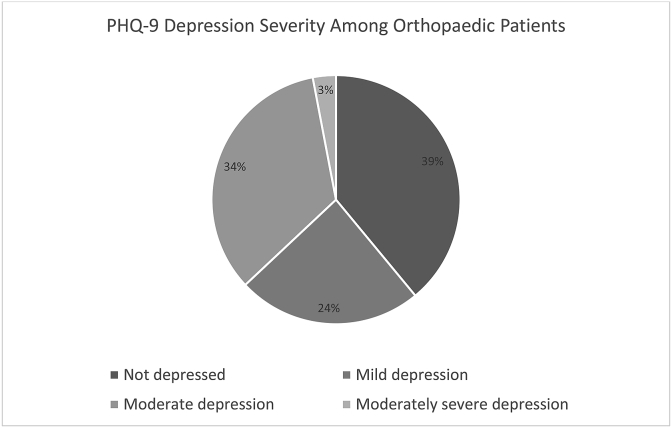Patients with musculoskeletal accidents in Sub-Saharan Africa typically obtain extended inpatient treatment because of restricted entry to surgical care. Little is thought concerning the psychosocial influence of extended conservative treatment for orthopaedic accidents, which can add to incapacity and preclude rehabilitation.
A cross-sectional, questionnaire research was performed to characterize the psychosocial health of orthopaedic inpatients at a tertiary hospital in Moshi, Tanzania.
Three validated surveys assessing coping methods, useful social assist, and signs of despair have been orally administered to all orthopaedic patients with a size of keep (LOS) ≥ 6 days by a Tanzanian orthopaedic specialist.Fifty-nine affected person surveys have been accomplished, and revealed 92% (54) of patients have been extra more likely to make the most of extra adaptive than maladaptive coping methods.
Patients with chest or spinal column accidents have been extra probably to make use of maladaptive coping methods (p = 0·027). Patients with head accidents had extra social assist in comparison with others (p = 0·009). Lack of insurance coverage, restricted schooling, and rural origins have been related to much less useful social assist, though this discovering didn’t attain statistical significance. 23·7% (14) of patients had signs per gentle despair, 33·9% (20) with reasonable despair, and three·4% (2) with moderately-severe despair.
LOS was the one vital predictor for despair severity.61% (36) of orthopaedic inpatients exhibited depressive signs, indicating that the psychosocial health in this inhabitants is sub-optimal.
Mental health is a vital component of profitable orthopaedic care. Access to well timed surgical care would tremendously lower LOS, essentially the most distinguished predictor of depressive symptom severity.

American Society for Bone and Mineral Research-Orthopaedic Research Society Joint Task Force Report on Cell-Based Therapies – Secondary Publication.
Cell-based therapies, outlined right here because the supply of cells in vivo to deal with illness, have not too long ago gained growing public consideration as a doubtlessly promising method to revive construction and performance to musculoskeletal tissues. Although cell-based remedy has the potential to enhance the treatment of problems of the musculoskeletal system, there’s additionally the likelihood of misuse and misrepresentation of the efficacy of such therapies.
The medical literature accommodates anecdotal experiences and analysis research, together with web-based advertising and affected person testimonials supporting cell-based remedy. Both the American Society for Bone and Mineral Research (ASBMR) and the Orthopaedic Research Society (ORS) are dedicated to making sure that the potential of cell-based therapies is realized by means of rigorous, reproducible, and clinically significant scientific discovery.
The two organizations convened a multidisciplinary and worldwide Task Force composed of physicians, surgeons, and scientists who’re acknowledged consultants in the event and use of cell-based therapies. The Task Force was charged with defining the state-of-the artwork in cell-based therapies and figuring out the gaps in data and methodologies that ought to information the analysis agenda.
The efforts of this Task Force are designed to supply researchers and clinicians with a greater understanding of the present state of the science and analysis wanted to advance the research and use of cell-based therapies for skeletal tissues. The design and implementation of rigorous, thorough protocols might be essential to leveraging these modern therapies and optimizing scientific and useful affected person outcomes.
In addition to offering particular suggestions and moral concerns for preclinical and scientific investigations, this report concludes with a top level view to deal with data gaps in tips on how to decide the cell autonomous and nonautonomous results of a donor inhabitants used for bone regeneration. © 2020 Orthopaedic Research Society. Published by Wiley Periodicals, Inc. J Orthop Res.
